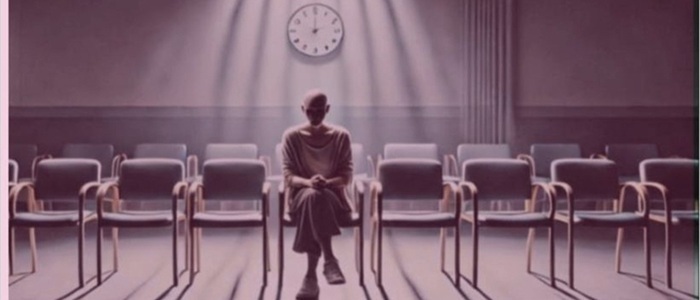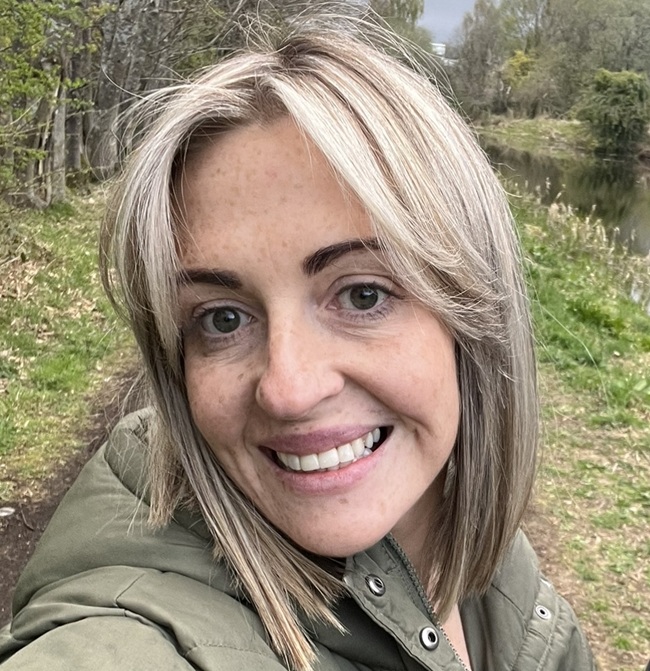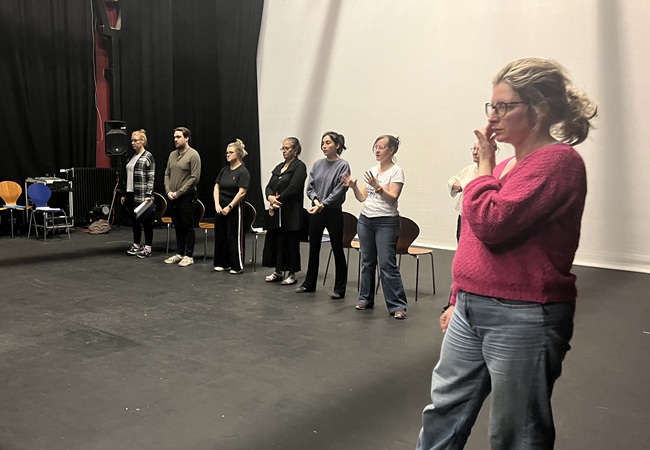A powerful new play written by University of Glasgow PhD student Lori Delaney will explore the real, often untold stories of breast cancer.
Based on nearly 40 interviews, community workshops, and Lori’s own personal journey with breast cancer, this play, which premieres on 1 May 2025, shows what illness really looks like - messy, complicated, and continuing long after treatment ends.
Lori, who was diagnosed at 33 in 2020 with breast cancer, said: “I was mid-way through my Masters at the University of Glasgow in performance practices when I was diagnosed. I felt compelled to turn my experience into an autobiographical work and create a performance installation about my experience of chemotherapy during Covid.
“I then decided to take this work further into my PhD study. During my research I interviewed nearly 40 people internationally with lived experience of breast cancer to help them tell the disruptive reality of the disease. So this encompasses everything from infertility due to the disease, loss of sexual desire or feeling, men living through breast cancer, the disruption of Covid-19 on treatment, addiction and mental health and having to take medication, and gender identity as well as the mundane. The play is funny, it's sad, it's absurd at points because it's a multifaceted experience and I really wanted to emphasise that.”
During her PhD research, Lori also undertook engagement events including workshops via a host of key third sector stakeholders and policy makers to help stimulate discussion with communities and people typically underrepresented in cancer stories like those experiencing significant material disadvantage.
The play has been co-creative with a range of people with lived experience of cancer. From these interviews, Lori held in person drama workshops with a group of women in Glasgow with breast cancer.
In her interview Cheryl said: “I guess I was naïve. Before that I thought I was the only one who had breast cancer and I would get this treatment and it was specific to me. They were like let’s get this all sorted for you and I believed them. And I walked in and there was rows and rows of f***ing people attached to chemotherapy. It was like a factory. You’re so insignificant here. You’re just a number and I felt frightened.”
While Mike, who has breast cancer, said a lot of people thought it was his partner and not him who was unwell: “Waiting for the shocked faces, the surprise….Funny looks, sad looks, confused looks, don’t look looks.”
For Tegan who experienced her treatment during Covid which made her feel isolated and unable to share her lived experience of cancer with others facing a similar diagnosis said: “I still feel angry. What made me most angry was that Covid took away my experience of breast cancer and you need to talk about that.”
And Amara feels her cancer will prevent her from finding a partner: “I’m not going to be introduced to someone now. It’s unsaid but I’m seen as damaged goods.”
Lori and team used the interview transcripts to decide what themes were crucial to really demonstrate the diverse disruptive nature of the disease and create the play.
Lori said: “Cancer doesn't happen in isolation and I wanted to explore the realities of the impact of the disruption that this massive shattering moment has on a whole life. Fraught with complexity, confusion and fear, breast cancer is not pink. And life goes on: people need to navigate a new reality around everything that they already are. This is why it was imperative for me to reach a range of people from a diversity of experiences to emphasise the damage that the constant positive survivor narrative can have on the psyche of those who are struggling through cancer and wondering why they do not feel that way.
“A Waiting Game is a verbatim play with real people’s words about their own encounter with an illness which can disrupt every fragment of a life.”
A Waiting Game
Date: Thursday 1 May, 2025 from 1:30pm to 3pm
Location: James Arnott Theatre, Gilmorehill Centre, 9 University Avenue Glasgow G12 8QQ
Tickets for
A Waiting Game are free but must be booked via
Eventbrite
This performance is support by the University of Glasgow College of Arts & Humanities and the Scottish Graduate School for the Arts & Humanities.
First published: 25 April 2025





